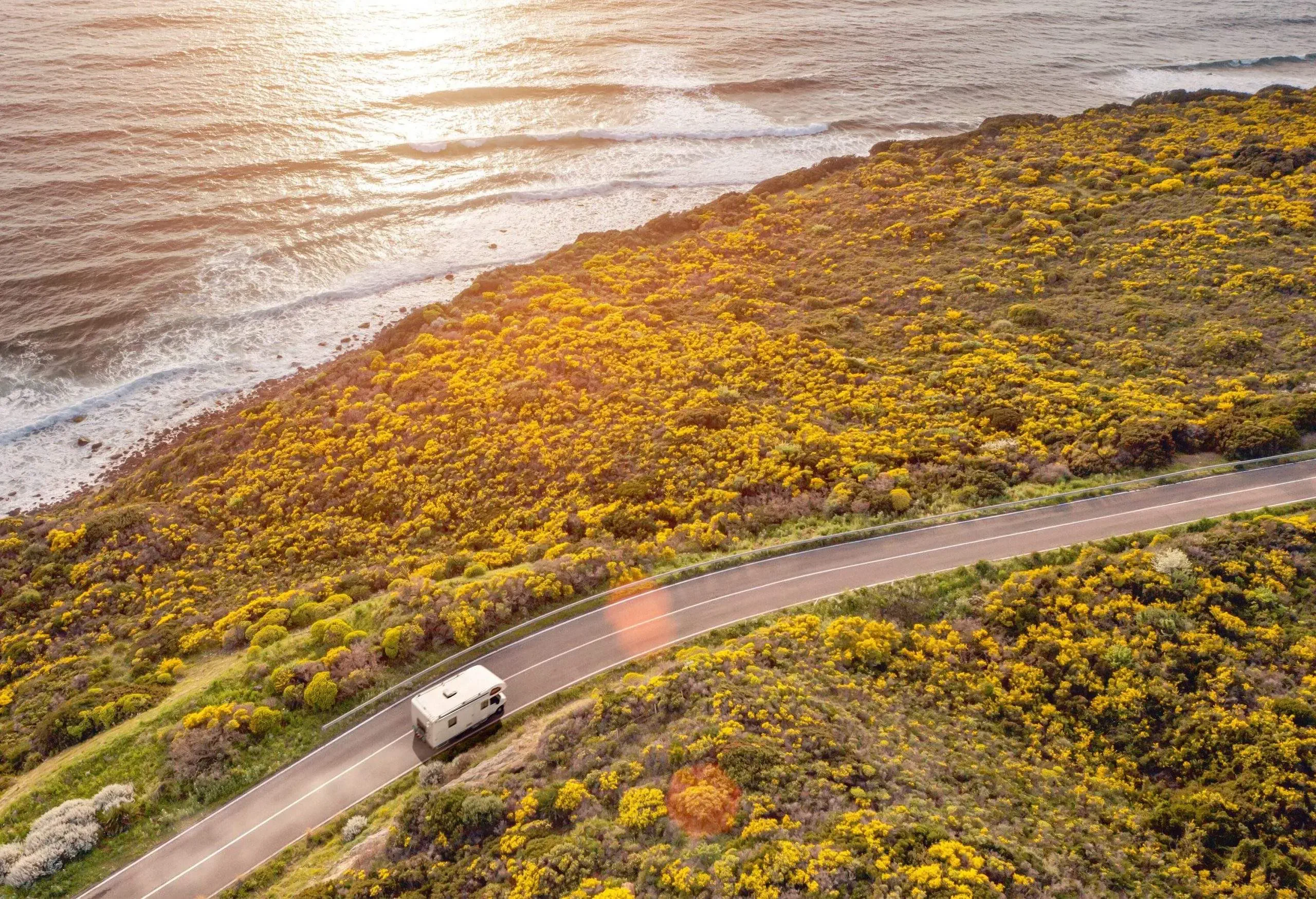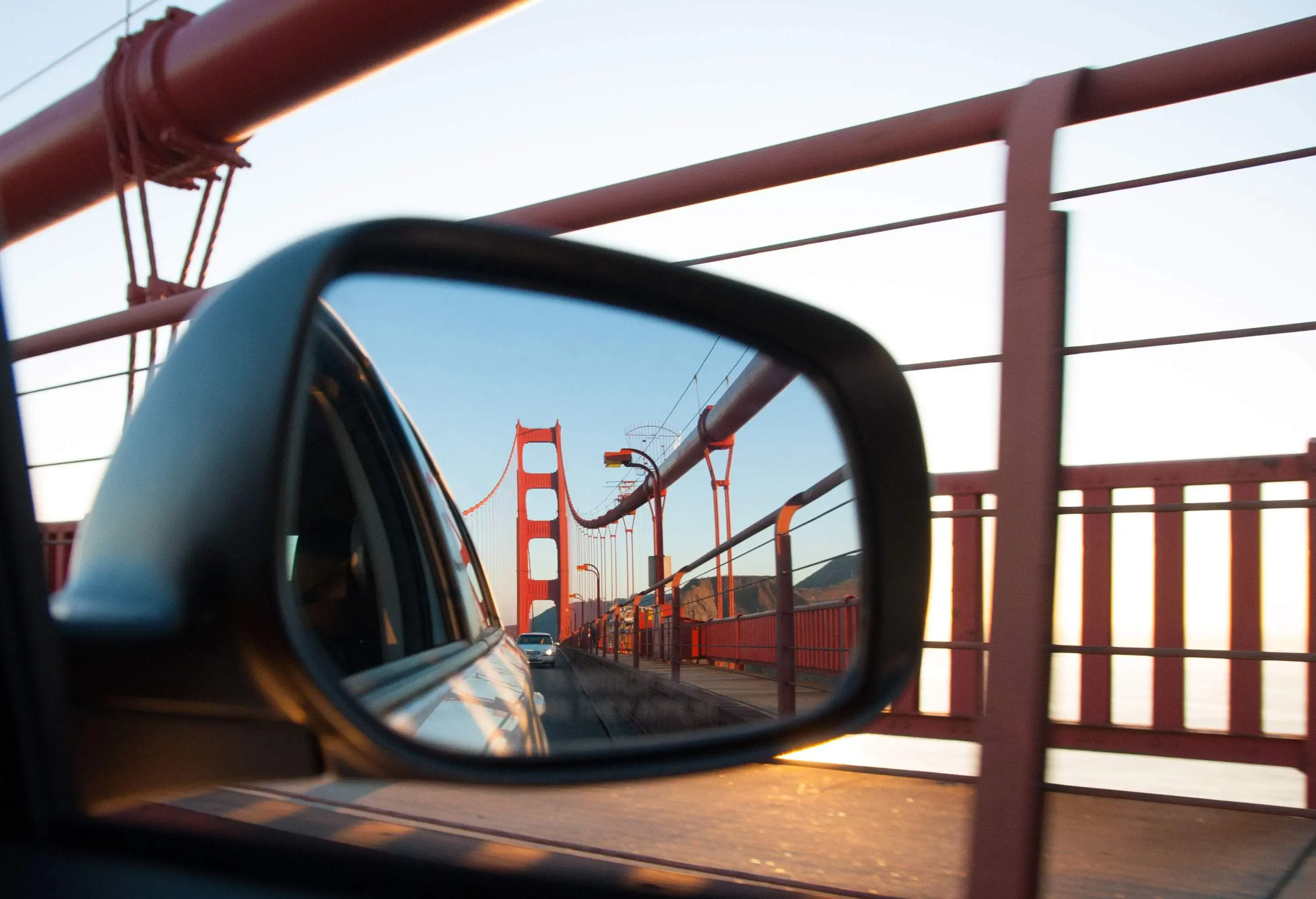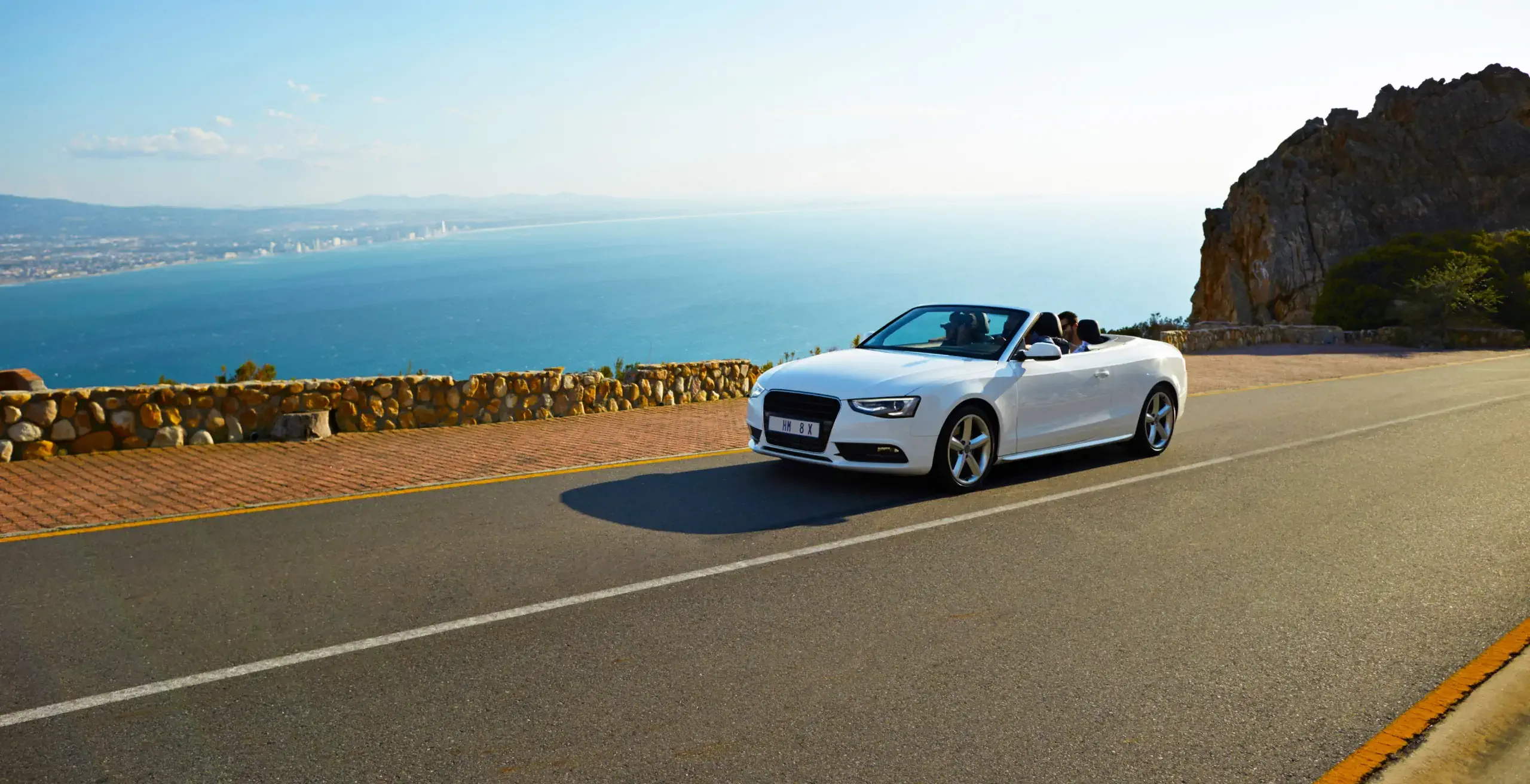Should I get rental car insurance? Yes! When you rent a car, it’s best to get car rental insurance. This guide covers where to buy insurance, what type of coverage to get, and what those policies cover.
Do I need rental car insurance coverage?
The short answer is: yes! You definitely need it. The tricky part is knowing what type of insurance you need, where to get it, and what different policies cover. This article will walk you through everything you need to know about selecting the right rental car insurance coverage for your budget and needs.
Ways to get rental car insurance coverage
Different companies sell car rental insurance. Your options include the following:
- Personal car insurance
- Car rental agency insurance
- External third-party insurance
- Credit card rental car insurance
All of these options have different ranges of price, coverage, and convenience. For example, it may be easier to get the car rental insurance directly at the counter of the car rental agency when you arrive to pick up your vehicle. But it may not be the cheapest option. So it’s important to consider the pros and cons of each with your particular needs in mind.
Personal car insurance
Does your car insurance also cover rental cars? The most common answer is: it depends. However, it is definitely worth checking with your personal car insurance provider. Chat with them before adding a potentially costly policy to your rental existing agreement.
Chances are if you don’t have comprehensive coverage for your personal car, the insurance won’t cover your rental car either. These days, more often than not, insurance will only cover the specific car mentioned on the policy. This means you won’t be covered if you crash your friend’s car or a rental.
Some policies will cover you when driving other cars, But the coverage might be limited and usually won’t include driving abroad.
In the majority of the cases, you will only be covered for personal use, but not if you are getting a rental car for a business purpose.
Car rental agency insurance
While it’s always good to check first about what insurance coverage you may already have on a personal plan, not everyone has the time. One of the most convenient choices for getting car rental insurance coverage is to purchase through the rental agency directly.
So if you want to keep your pre-travel to-do list short, the convenience of this option makes it worth potentially paying a bit extra for many travelers.
This type of insurance typically includes coverage for collision damage, theft, and liability. It’ll provide peace of mind during your rental period. But be sure to review the terms to understand any exclusions or deductibles before you buy.
External, third-party insurance
External, third party insurance is an option that can be just as convenient, and it’s worth looking into to compare pricing options. Insurance companies have analyzed the requirements of car rental agencies and created coverage services for the vast majority of rental car scenarios.
This means many find these policies to be flexible and customizable to suit their specific needs. Just be sure to check if the policy includes benefits like loss-of-use coverage or coverage for additional drivers, which can vary depending on the provider.
Credit card rental car insurance coverage
There are plenty of good credit cards out there that not only allow you to collect miles and airline status but also offer various insurance policies.
Check the fine print of your card to see what they offer. Cards like the United Club Infinite Card, Chase Sapphire Preferred Card, and Capital One Venture X Rewards Credit Card include coverage like Auto Rental Collision Damage Waiver. Meanwhile, AMEX car rental insurance often comes with enhanced coverage.
How credit card insurance works
To activate rental car insurance, you’ll most likely need to pay for the rental in full with the credit card you want coverage from. You may also have to deny the rental agency’s collision coverage as well.
Most credit cards offer secondary coverage, meaning they kick in after your personal auto insurance, but some premium cards also provide primary coverage.
So be sure to check the terms and conditions for this, just to be sure. Some might also limit coverage to a certain timeframe or specific locations.

Types of rental car insurance coverage
Now that we know where you can get a car rental insurance policy, it’s time to go into the details about what these plans can cover. There are basically five main types of coverage. These include insurance for collision damage, loss damage, liability, personal accidents, and personal effects coverage.
When it comes to these rental car insurance options, there are a bunch of confusing acronyms, scenarios, and regulations that change from city to city. So here’s a simple break-down of your options:
How does my destination impact my insurance needs?
While all rental car insurance policies are important, some are truly indispensable and will save you a lot of trouble in the event of an incident.
A must-have is Third Party Liability Insurance, which covers damage done to other people or their properties. Another policy that you are strongly advised to add is the Collision Damage Waiver, which covers you in case of damages to the car.
Additional insurance worth considering is Roadside Assistance, especially if you are in a foreign country, and Personal Accident Insurance, which covers your personal expenses in the case of an accident.
Make sure you ask about the excess involved when adding a policy, and if the amount is particularly high, you can get Car Rental Excess Insurance to cover that.
Insurance coverage tends to have a limitation when it comes to location and circumstance. Make sure you check the regions where your coverage applies and what specific circumstances are or aren’t covered.
Search for rental cars
Car rental insurance in the US
When traveling to the US, each state might have a different law as to which insurance is required and which is not.
But overall, the three main types of insurance that you should have in all cases are Third Party Liability Insurance, which is a requirement, Collision Damage Waiver (CDW) or a Loss Damage Waiver (LDW).
Note that the latter comprises both CDW and Theft Protection, which means you are covered if the vehicle is stolen and for damages sustained during your rental period as a result of theft.

Rental car insurance in the UK
When renting a car in the UK, the insurance policies you will be offered are similar to those in the rest of Europe or the US.
The main thing to note is that Liability Insurance is the only policy that is legally mandatory to have. Collision Damage Waiver is not a legal requirement but is often included and highly advisable.
Car rental insurance in Europe
When renting a car and traveling throughout Europe, you will find that some insurance policies might already be included in your contract such as Collision Damage Waiver, Third Party Liability and Theft Protection. Some of these will include an excess, and if you want to reduce it to zero, consider taking out an Excess Waiver policy.
However, make sure you read the fine print in regards to what it does and does not cover. If you are planning to travel around Europe and cross borders with your car, it is important to double-check the car rental policy and ensure that you have coverage in all the countries you will be visiting.
What to do in case of an accident
Let’s face it, accidents can happen even to the best of drivers. And it’s a good idea to have a plan in place in the event of a collision – just in case. Here’s what to do if you get into an accident with a rental car:
- Check on everyone involved in the accident: Safety first! Make sure everyone in the car is okay and act accordingly. Assess whether to vacate the vehicle to avoid dangers like fires or traffic.
- Take pictures and share contact information: Document any damage by taking photos of the incident. Collect insurance and license plate numbers of anyone else involved.
- Contact the rental car company: Their contact info should be somewhere in the vehicle, or you can check online. If you have a third-party insurance provider, you’ll also need to get in touch separately.
- Sort out who should pay for any claims: This will depend on the type of insurance you have, but most will cover at least a basic collision damage waiver.
It’s also a good idea to review the condition of the car before you drive. You can also document any dents or scratches before you leave the parking lot. This way you can ensure you won’t be charged with them when you drop the car off at the end of your stay.
Rental car insurance FAQs
The short answer is: yes, you definitely need it! There are many different types of rental car insurance coverage, deciding which one to take depends on the level of protection you would like to obtain; some cover only the vehicle you rented, others also cover injuries or damage caused to others or to yourself and your passengers.
The car rental company you select will clearly mention in their terms and conditions which type of insurance is mandatory according to their own policy and local legislation. It may also depend on the type of car you get.
Different brokers or companies sell insurance for your rental. Your options include the following:
- Through the car rental company
- An independent broker
- General travel insurance
- Personal car insurance
- Your credit card
All of these options have different ranges of price, coverage, and convenience.
Car rental insurance typically covers three basic things: damage, theft, and third party liability. Damage to the rental car includes damage to the bodywork. Theft cover means you won’t have to pay for a new car if the rental car gets stolen. Third party liability is if you hurt anyone or damage anything in your rental car.
You’ll find insurance that protects the rental car, other people and their property, personal accidents, and roadside assistance. The most popular insurance types are:
- Collision Damage Waiver (CDW)
- Loss Damage Waiver (LDW)
- Liability insurance
- Personal Accident Insurance (PAI)
- Personal Effects Coverage (PEC)
Most rental car companies will request some form of mandatory insurance. How extensive the coverage is will depend on the company, where you will drive the car and the local legislation.
Often things like Liability Insurance, Collision Damage Waiver and Personal Effects Coverage are optional add-ons. Whether you sign up for them will depend on the level of protection you desire. You should also consider where you will be driving as this may determine extras like roadside assistance.












